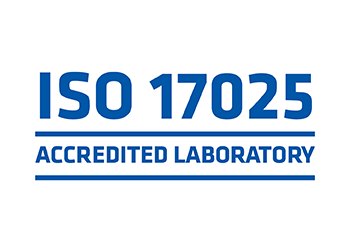
This part of the standard offers options based on the laboratory’s larger structure.

The section also covers process improvement procedures and ways to handle corrective actions. This section includes standards for quality management system (QMS) documentation and control of documentation and records. Management system requirements: Section 8 of the standard lays out expectations for laboratory management systems.The final clauses focus on handling problems in the process, such as nonconforming work and customer complaints. The bulk of the following procedures outline testing best practices, such as sampling methods, recordkeeping, monitoring and verification. The first few focus on assessing contracts and techniques. Process requirements: Section 7 of the standard includes 11 core processes to use for maximum efficiency.These encompass facilities, equipment, staff, systems and support services. These resources include six clauses that specify the basic requirements for specific resource areas. Resource requirements: Section 6 of the standard addresses the resources needed for laboratories to conduct testing effectively.
#ISO 17025 ISO#
The ISO guideline also sets basic competency requirements and duties for laboratory personnel. For example, managers must oversee everyday activities and maintain their obligations to customers and regulatory authorities. As for structural requirements, the standard outlines the responsibilities of each role. Per the ISO regulation, a laboratory can only qualify for accreditation if it handles calibration testing in any capacity. This structure includes what the lab’s overall hierarchy is and how it functions.
Structural requirements: Section 5 of the standard defines a laboratory’s essential organizational components. They are also key requirements for maintaining a laboratory’s reputation. These protocols are essential for maintaining customer trust and confidence. Confidentiality means the laboratory will keep its results private. Impartiality means the laboratory will not allow outside influences to compromise results. The primary focus of this section is on impartiality and confidentiality. General requirements: Section 4 of the standard covers general requirements for laboratories. These tests and audits primarily focus on five key areas, outlined by the standard: In compliance audits, the auditor will assess and test multiple areas of a company’s procedure and structure. After this initial accreditation, the laboratory must then undergo regular audits to verify continuing adherence to the regulation. They earn initial accreditation when a third-party evaluates and certifies them for compliance. To be accredited to ISO 17025, calibration laboratories must prove and maintain their compliance. Being accredited for this standard signals that a calibration lab meets global industry regulations for quality and accuracy. The primary reason for this international standard is conformity. This standard sets an international baseline. Independently owned labs and certification organizations adhere to these guidelines, as well as government bodies, universities and research centers. Calibration laboratories around the world recognize and often follow this standard, regardless of their structure. ISO 17025 is a standard that defines quality management for calibration services. Here, we will discuss the importance and benefits of ISO 17025 lab accreditation so you can understand what ISO 17025 means for your business and how it can improve your operations. But what exactly is this standard, and what does accreditation mean for labs and their customers? This recognition is highly desirable for calibration labs around the world, as it demonstrates that the lab meets global standards for operational competence and validity. ISO/IEC 17025 is accreditation for laboratories that perform product testing, sampling and calibration. Calibration laboratories, specifically, need certification for the ISO 17025 standard. Many laboratories prove their testing qualification through accreditation. 
However, laboratories that offer testing as a service need to show they are qualified to perform these experiments. To accomplish this, companies will often go to testing laboratories. Testing can cover anything from quality and conformance to safety and calibration.

Many industries use testing to get unbiased assessments of their products.







 0 kommentar(er)
0 kommentar(er)
